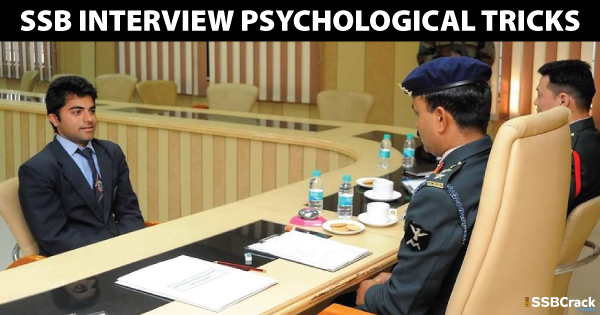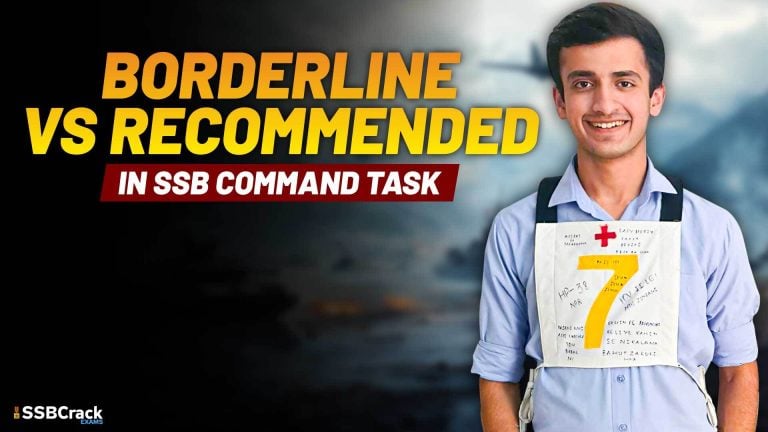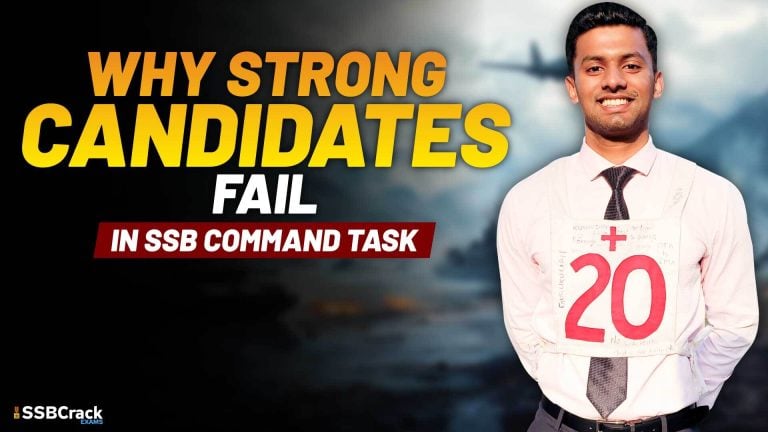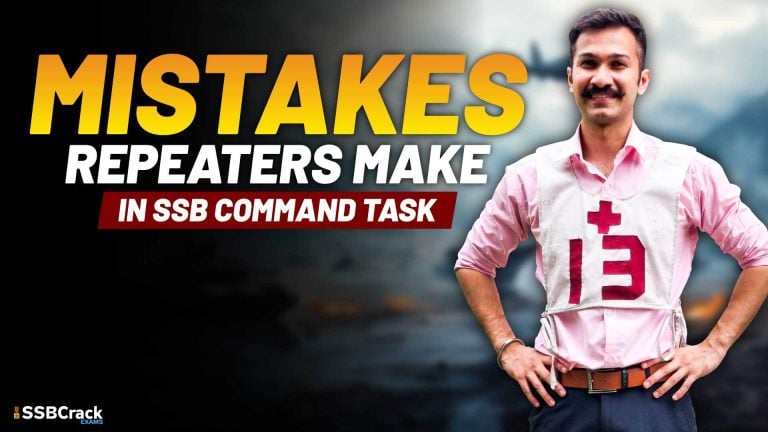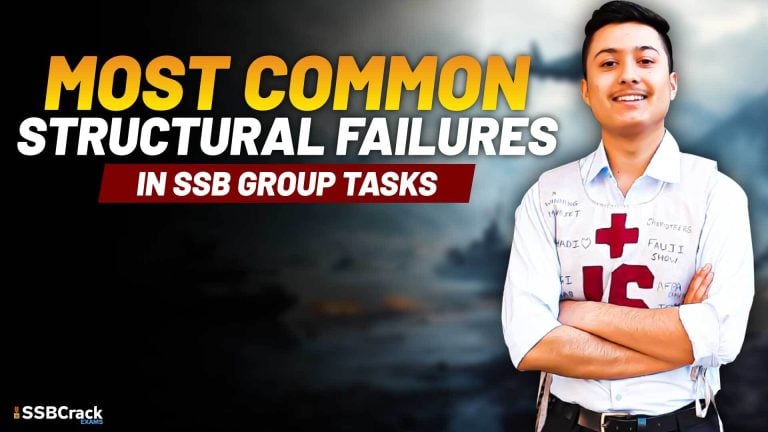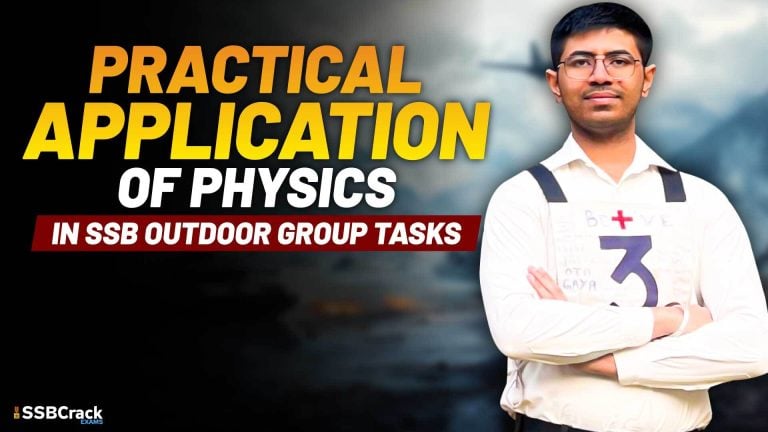Being a repeater in an SSB group requires a lot of guts. Especially, when it is just your first or second time. You won’t get a chance to speak, you won’t get a chance to pitch in your idea and what not that you finally succumb to they overpowering you and you just feel like sitting in a corner.
But not when you know how to influence the group. Here we bring you 14 psychological tricks that you can use during the selection process to make your presence felt:
SSB Interview Best Online Classes Schedule [Will be updated as per the batches]
1. Just continue to say what you are saying:
During the GD or GPE, you will literally beg others to give you a chance to let speak. But no one will show you mercy. Instead, what you can do is just continue to speak what you are speaking fluently without stopping until everyone stops and listens to you for a moment. That is your time to pitch in the most critical points to the group. Mission Accomplished!
2. Say and Withdraw:
Use this strategy to put in your points in GD and GPE. Wait for that moment when the group is mostly silent and then put in your points quickly and withdraw before anyone interrupting you. Repeat this for 4-5 times in a task. This is the best strategy one can use for any GD in a repeaters group.
3. Reciprocate Actions:
While performing outdoor tasks, try to reciprocate and appreciate the ideas of others in the group. This will make you look that you are cooperative and a team-worker. On the other hand, do not be the one who only works his own and doesn’t listen to others.
4. Agree to make them shut up:
When in GD, GPE or any outdoor tasks, you realize that a particular candidate is not giving you chance to speak and is being aggressive, just agree to his points and say that while his points are good, I have a better idea to execute the same task.
5. Save statistics for later:
Although data and statistics are always accurate, people tend to believe in stories and overlook the figures. So when you are giving someone some data, give it with a story first and sneak in your data in the middle of your story.
6. Argue Calmly:
When there is a clash of opinion in GD or GPE, it leads to an argument. When arguing with someone, act much calmer than them. This can cause them to say something particularly irrational which you can use against them. Do it when in GD or other group tasks.
7. Present Figures:
When you feel that people around you are starting to create a mess, present figures as statistics in your group to make them calm down. This means, while the figures might not be exact but it looks realistic. Do not go too far away with this.
8. Never nominate:
There are two golden rules of GPE: nominate yourself for the final group plan or do not nominate anyone, second, never contradict the group story. Once the story has been given, GTO asks whether this is the group story, just say “yes sir”. No point contradicting now, except, it is a negative point for you.
9. Fulcrum and effort:
The whole series of outdoor tests are based on the principle of the cantilever. You just need to search for two things here: the end which will restrict the motion of material (effort) and the point where the weight of your material lies (fulcrum). You either need to make effort or fulcrum or both by yourself, so, always try to find the fulcrum and effort in every obstacle.
10. BRIEF for Lecturette:
There is a framework to attempt Lecturette. Of any topic that you choose, always try to deliver it in BRIEF, meaning Background on the topic, Reason for choosing the topic, Introduction to the topic, End the topic, Follow-up/Conclusion. Take 30 seconds for each of the acronyms and you would be done in 3 minutes.
11. Give complete actions in SRT:
While writing SRT responses, follow this pattern to show a complete response:
“He did this, did this, did this and achieved this.” Follow this pattern for every response depending on the number of actions performed by the characters.
12. Format for WAT:
Just like SRT, there is a format to attempt WAT words too. While making a sentence, try to keep it in this framework: “I strongly believe that _________________”. For eg, the word “Blood” is given. One possible response could be: “I strongly believe that… blood donation is a noble cause” Just remove the prefix “I strongly believe that” before writing down your response.
13. The interviewer is your friend:
During the interview, think of the interviewer as your old friend or a close relative. This will make you more open to him and you can be more confident. But mind you, this is still the same interviewer, so, focus that you think before you speak every word.
14. Qualities you’d like to improve:
When the IO asks this question, do not straight away say to him what you lack. Instead, tell the qualities that you lack but are highly trainable, like you can say – “sir, I want to develop a great stamina and a chiselled body.” Or you can also say “sir, I’d like to polish my communication skills with more use of good vocabulary”. Although these are the qualities that you may lack, these are highly trainable and you can achieve this with little or more practice.
Conclusion:
The whole SSB testing is designed based on testing the psychology and personality of a candidate. Within this psychology-based testing, you can apply the common psychology to turn the winds in your favour. Good luck.
To crack the SSB Interview, NSB interview and AFSB interview, You can join our SSB interview live classes batch and we recommend you to Enroll SSB INTERVIEW ONLINE COURSE. Trusted by thousands of defence aspirants.
